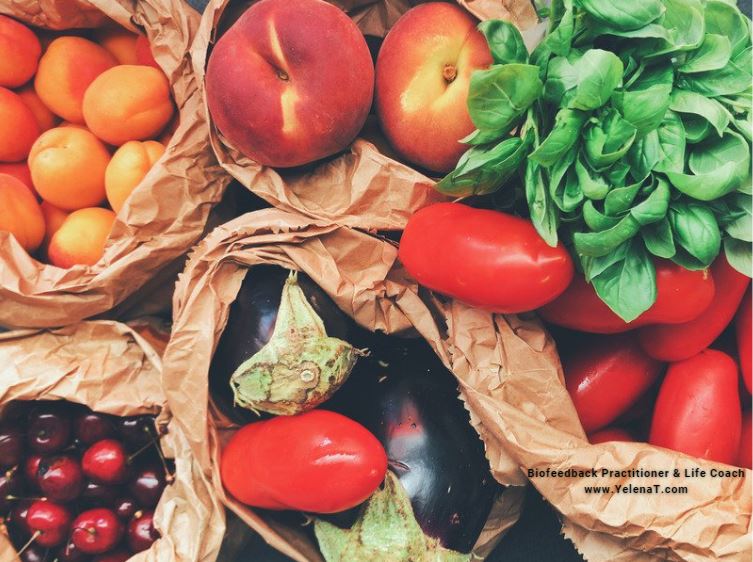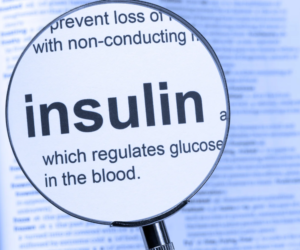Poor sleep is a common side effect of modern society. Whether it’s the stress of work, deadlines, or family worries that keep you up at night, we all suffer from not getting enough shut-eye. But what if I told you there was something you could do to make yourself both healthier and more relaxed? Most people don’t realize this but your diet has a huge impact on how well you sleep!
The article goes on to describe foods and their role in better sleeping.
Nutrition affects your sleep in a number of ways: macronutrients, including protein, fat, carbs and fiber help the body feel full; vitamins and minerals provide protection for the brain while we sleep; finally there is growing evidence that shows what foods can both improve or detract from quality sleeping patterns.
Protein
Protein-containing foods are an important component of a healthy diet, as they can help improve sleep. For example, tryptophan is the amino acid which the body uses to make melatonin and protein-rich foods often contain this compound. Additionally, eating more protein helps curb hunger hormones and give you sustained rest overnight.
A review of recent sleep-nutrition research found that consumers with higher sleep quality consumed more protein and fewer carbs/fat. A Columbia University Study also found that participants who ate high-protein meals had better sleep AND spent a greater amount of time in deep, restorative REM sleep.
There are many great sources of protein for sleep, including eggs, fish, chicken breast, broccoli, spinach and almonds.
Fiber
Sleep quality is directly related to the types of foods you consume. Eating high-fiber diets has been linked to less time spent in light sleep and more time spent in slow-wave sleep, the deep, highly restorative stages during which cells regenerate themselves. A study from Columbia University found that a single day of low-fiber consumption can negatively impact sleep the same night.
Avocadoes, pears, chickpeas, lentils, oats, and dark chocolate are some of the high-fiber foods that can contribute to a good quality sleep.
Magnesium
Magnesium is a mineral that has powerful benefits for sleep, including calming the nervous system and relaxing muscles. Magnesium is involved in regulating the “sleep hormone” melatonin, helps maintain healthy levels of Vitamin D, which facilitates more restful, high-quality sleep and promotes GABA production, among other things. Many people lack magnesium, which is linked to insomnia. Since we don’t produce it on our own, adding foods that contain magnesium to our diet is essential.
Healthy dietary sources of magnesium include banana, spinach, and avocados. Brown rice, tofu, and cashews are also good sources.
Potassium
Potassium influences healthy circulation, digestion, and muscle relaxation. Researchers have shown that higher potassium levels are also correlated with fewer awakenings at night.
Foods that are high in potassium include leafy greens, bananas, mushrooms, and legumes.
Vitamin D
Vitamin D aids in regulating the circadian rhythm, which regulates our sleep-wake cycles. A lack of this vitamin has been linked to short sleep duration and restless sleep.
Sunlight is the perfect source of Vitamin D. Our bodies produce it in response to sun exposure. Dietary sources include fish, egg yolks, dairy, and fortified foods.
Omega-3 Fatty Acids
These fatty acids are essential to the body as they cannot be produced by our own bodies and must instead be sourced from food or supplements. Research has shown that omega 3s have a myriad of benefits, including improved sleep quality and falling asleep faster. Some studies in animals have suggested that omega-3 deficiencies may interfere with the production of nighttime sleep hormone, melatonin.
Some of the best sources of sleep-inducing omega 3s are anchovies, bluefish, mackerel, wild-caught salmon, and tuna. Good sources of the omega 3 ALA include walnuts (walnut oil), flax seeds (flax seed oil) and soybeans (canola oil and soybean oils).
Water
Being properly hydrated is an important element in a healthy and restful night’s sleep. In order to maintain good water levels throughout the day, drinking larger quantities of fluids can be beneficial. I recommend drinking 12-16 ounces of room temperature water first thing upon waking, to help replenish overnight fluid loss.
What are the foods we should avoid or drastically reduce in order to ensure good sleep?
Sugar
Eating sugar has a dramatic effect on our sleep. Sugar contributes to restless sleeping, nighttime awakenings, hunger-induced late-night eating that disturbs the soundness of our rest, and inflammation (which in turn interferes with sleep).
Saturated and Trans Fats
Consuming diets that are high in saturated fats can lead to lighter sleep, as well as more frequent waking throughout the night. Saturated and trans fats in highly processed foods have been linked to weight gain, inflammation, and sleeping poorly. Healthy fats are important for good health, but the type of fat we eat matters greatly.
A healthy diet is essential for both sound sleep and daytime energy. With the addition of a good night’s sleep, exercise, and an efficiently-managed bedroom environment, your whole-foods meal plan will contribute to better daytime focus and a more restful night time slumber.
I hope you found this useful and informative. If you think so, please share it with your friends on Facebook or elsewhere! If you need additional assistance improving your sleep patterns, please click below and schedule a FREE Quantum Biofeedback session:
https://yelenat.com/quantum-biofeedback/
Be Healthy! Be Safe! Be Well!








